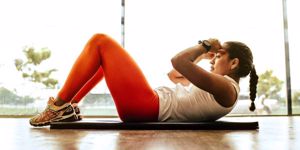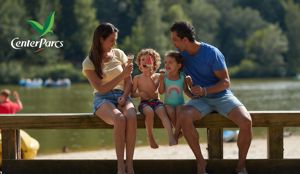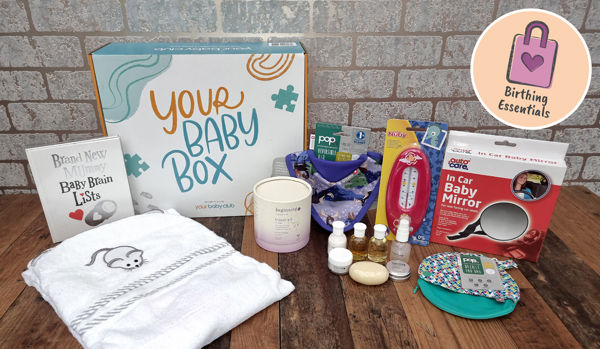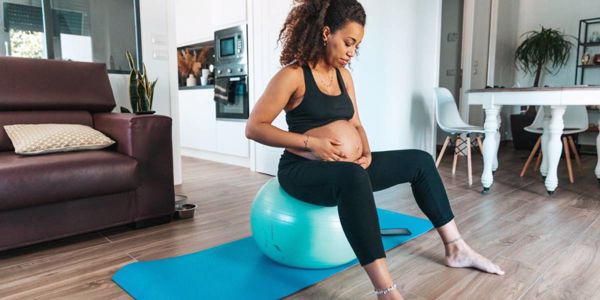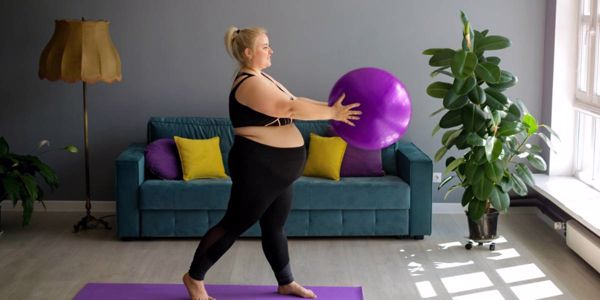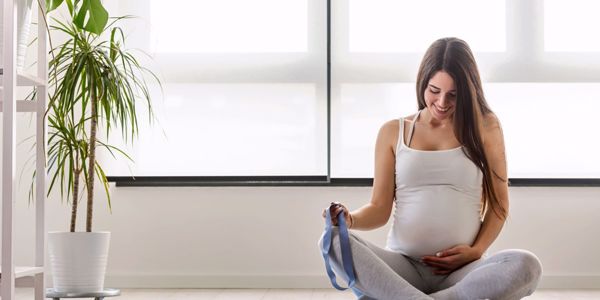Choosing how or even if you want to exercise after having a baby is a very personal decision. It’s certainly not a one shoe fits all type of situation and there are a number of different things to think about beforehand. Enduring pregnancy and childbirth hugely affect our bodies and our ability to cope with exercise & it's important to remember that. Here are 8 things to think about before you make a decision surrounding exercise.
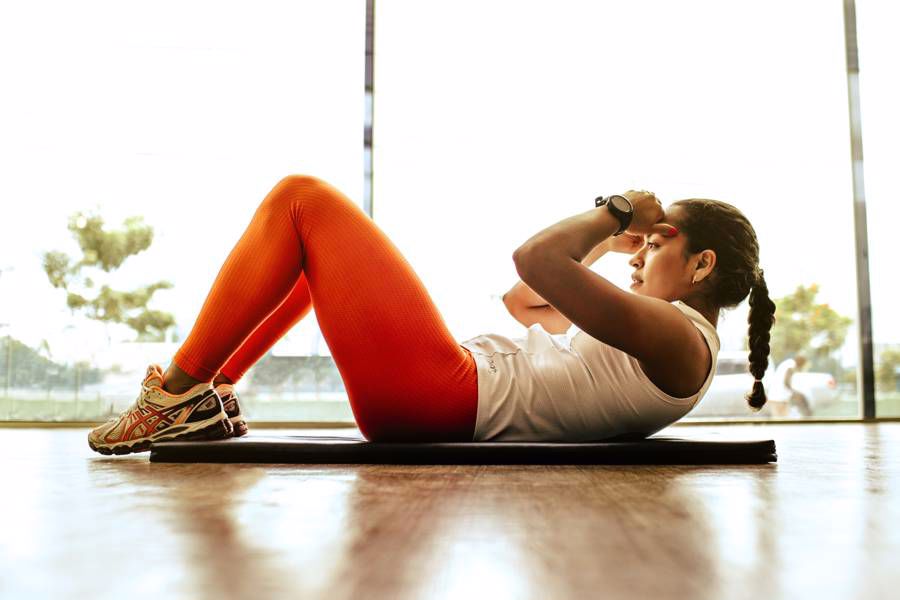
When can you start exercising after having a baby?
The general consensus from the NHS is that you should refrain from exercise until at least your 6-week post-birth check-up. It’s at this point at the very earliest your midwife will give you the go-ahead to start exercising again. This blanket advice, is just that and shouldn't be seen as correct for all mothers. It’s not as if something clicks exactly six weeks after you give birth. Each mother is different and will be given advice on a case-by-case basis. It’s important you get the go-ahead from your midwife first before undergoing any physical exercise.
Your Baby Club and Center Parcs are giving you a chance to win a family break in a Woodland Lodge at a UK Center Parcs village of your choice.
Pelvic floor exercises are still exercises.
Pelvic floor exercises are important both during and after pregnancy. When practised regularly pelvic floor exercises can help reduce incontinence. I always find pelvic floor exercises the hardest thing to remember to do, but even just a little goes a long way. Maybe you could do yours as you’re reading this blog post?...
Leaking during exercise isn’t normal.
The majority of women will experience some amount of leaking during exercise. Unfortunately, it’s seen as normal and joked about, but it doesn’t mean that it is. Your pelvic floor has been placed under a huge amount of strain during pregnancy and birth and it’s important to recognise the symptoms of a weakened pelvic floor. Being unable to hold your wee, leaking if you cough or sneeze, leaking when jumping or experiencing stress incontinence are all symptoms you may want to contact your GP about. You shouldn't have to worry about leaking when exercising.
Be wary of relaxin.
Relaxin is the hormone which is released during pregnancy. It loosens your ligaments, cartilage and cervix, essentially getting your body ready to house and evacuate another human being. It’s this hormone which causes instability in your joints and surprisingly it continues to be released up to 5 months after having your baby (potentially even longer if you’re breastfeeding). The human body really is a wonderful thing, but it’s important to be wary of relaxin and the effect it has on your joints. You may want to avoid high-impact exercises to begin with until your body feels 100% ready.
Set realistic goals.
When you return to exercise after having a baby it’s important to set yourself realistic goals. Your fitness levels aren’t going to be the same as they were pre-pregnancy. Your body is healing and you’re probably dealing with a huge lack of sleep looking after a newborn. It’s important to be kind to yourself and recognise what’s achievable and what isn’t. It might be worth starting off by giving yourself a certain amount of time to exercise in rather than a specific distance or weight goal. Aiming to exercise for ten minutes a day, rather than running X amount of miles will be so much more achievable and will only spur you on to do more.
Exercise & sleep deprivation don’t mix.
Sleep deprivation takes its toll on your body so much more than just feeling tired. If you’re suffering from sleep deprivation I’d really recommend swapping exercise for a moment of self-care. Exercising whilst feeling exhausted can damage your wellbeing, negatively impact your progress and can inhibit recovery. If you do however feel like you really want to exercise, I’d recommend something low impact like yoga or practising breath work.
Exercise & breastfeeding.
There’s been a lot of contradicting opinions thrown about regarding exercise and breastfeeding. Especially when it comes to weight loss. It’s a tale as old as time. One thing I will mention however is that if you are breastfeeding, try and not feel the pressure to lose weight or get back into an exercise routine. Nailing your latch, maintaining hydration and eating what makes your body feel good are so much more important.
Comparison is the thief of joy.
Like with anything parenting or pregnancy-related, it’s easy to play the comparison game. It’s so important to realise that everybody’s body works differently. And everybody’s body works differently after each pregnancy (which I know all too well) too. We all recover at our own pace. We all process calorie intake differently. We’re just different. So please, please, please try your best not to play the comparison game when it comes to other mothers' post-baby exercise routines.


